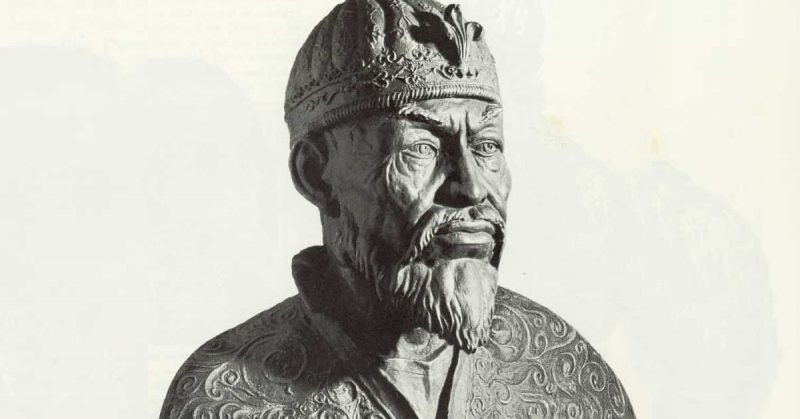Timur
As the first emperor of the Timurid dynasty, Timur was a Turco-Mongol conqueror who established the Timurid Empire in and close to present-day Afghanistan, Iran, and Central Asia. He is widely recognized as one of the finest military leaders and tacticians in history and is an unbeaten commander. Due to his interactions with thinkers like Ibn Khaldun, Hafez, and Hafiz-i Abru, as well as the introduction of the Timurid Renaissance during his reign, Timur is also regarded as a renowned patron of art and architecture.
From there, he led military campaigns against the Khans of the Golden Horde, the Mamluks of Egypt and Syria, the forming Ottoman Empire, and the defunct Delhi Sultanate of India. As a result, he became the most powerful tyrant in the Islamic world and conquered Western, South, and Central Asia, the Caucasus, and Southern Russia. He established the Timurid Empire as a result of these conquests, however this empire disintegrated long after his passing.
Timur was the last of the great nomadic Eurasian Steppe conquerors, and his kingdom paved the way for the development of the more organized and long-lasting Islamic gunpowder empires in the 16th and 17th centuries. Although he was likely not Genghis Khan's direct descendent on either side, Timur was of both Turkic and Mongol origin. Some scholars have even speculated that Timur's mother might have been a descendant of Khan. Invoking the legacy of the latter's victories during his lifetime was his goal. According to Gérard Chaliand, Timur considered himself as Genghis Khan's heir and had visions of Genghis Khan's (1227–1227) Mongol Empire being restored.







